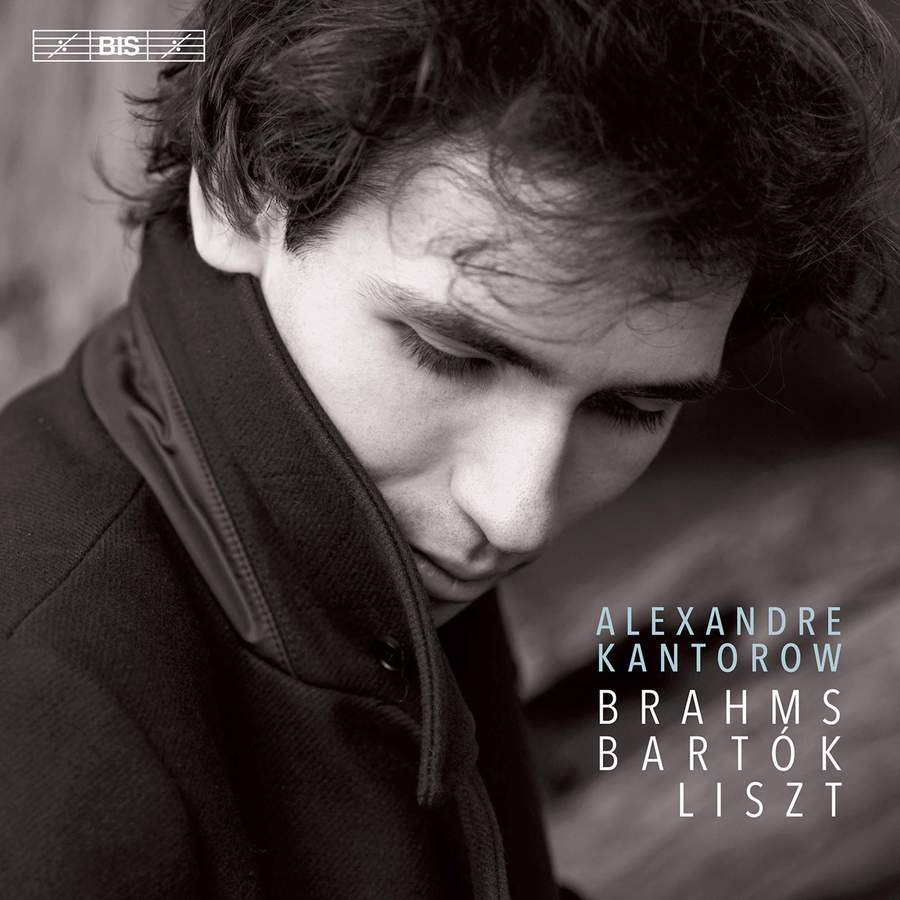Alexandre Kantorow: Bartók, Brahms, Liszt
View record and artist detailsRecord and Artist Details
Genre:
Instrumental
Label: BIS
Magazine Review Date: 11/2020
Media Format: Super Audio CD
Media Runtime: 68
Catalogue Number: BIS2380

Tracks:
| Composition | Artist Credit |
|---|---|
| (2) Rhapsodies, Movement: No. 1 in B minor |
Johannes Brahms, Composer
Alexandre Kantorow, Piano |
| Sonata for Piano No. 2 |
Johannes Brahms, Composer
Alexandre Kantorow, Piano |
| Rhapsody |
Béla Bartók, Composer
Alexandre Kantorow, Piano |
| (19) Hungarian Rhapsodies, Movement: No. 11 in A minor |
Franz Liszt, Composer
Alexandre Kantorow, Piano |
Author: Patrick Rucker
By June 2019 when, at the age of 22, Alexandre Kantorow became the first French pianist to win the Tchaikovsky Competition, he already had four recordings to his credit: French violin and piano sonatas with his father, Jean-Jacques (NoMad Music, 2014); the two canonic Liszt concertos and Malédiction (BIS, A/15); a Russian recital (7/17); and the last three Saint-Saëns concertos (6/19). Since his Moscow victory, he has been the piano soloist in a new recording of music by José Serebrier (4/20) and, most recently, has a solo release of his own, including rhapsodies by Brahms, Bartók, and Liszt.
Kantorow is obviously an outstanding pianist and musician with an agile technique that allows him perfect clarity in the most complex textures, abundant sensitivity and refinement, and maturity well beyond his years. For the final round with orchestra in Moscow last year he played the Tchaikovsky G major and Brahms B flat Concertos, a remarkable feat given the enormous demands of both those works. In interviews he’s called Brahms his ‘favourite’, and that affinity is apparent here.
A passionate reading of the first of the two Op 79 Rhapsodies serves as the overture to Brahms’s sprawling F sharp minor Sonata, a symphony locked within a piano sonata if there ever were one. Kantorow’s approach to the sonata is both thoughtful and persuasive, with ample stores of sympathy for its 19-year-old composer. He brings a welcome sense of coherence to the Andante con espressione which, in other hands, can sound like alternating whispers and shouts. His performance of the rhapsodic finale, perhaps part of the rationale for the sonata’s inclusion in this programme of rhapsodies, is certainly among the most convincing.
Bartók was roughly the age Kantorow is now when he composed his Op 1. With his piano transcription of Strauss’s Ein Heldenleben already behind him, Bartók had yet to undertake the folkloristic field research with Kodály that would inform his mature style. Kantorow hews a confident path through this dense thicket of post-Liszt-Mosonyi-Erkel rhetoric with its heavy Straussian canopy, imbuing it with a credible sense of characteristic parlando rubato. That he does so without overplaying is cause for even greater wonder. Arrival finally at the 11th Liszt Rhapsody feels like the achievement of an oasis of purest classicism and succinct expression, and provides a showcase for Kantorow’s ability to maintain clarity and poise at breakneck speed.
Rarely has the growth of a young artist been so amply documented in recordings as has Kantorow’s. I’ll be among those eagerly anticipating its continued flowering.
Discover the world's largest classical music catalogue with Presto Music.

Gramophone Digital Club
- Digital Edition
- Digital Archive
- Reviews Database
- Full website access
From £8.75 / month
Subscribe
Gramophone Full Club
- Print Edition
- Digital Edition
- Digital Archive
- Reviews Database
- Full website access
From £11.00 / month
Subscribe
If you are a library, university or other organisation that would be interested in an institutional subscription to Gramophone please click here for further information.




